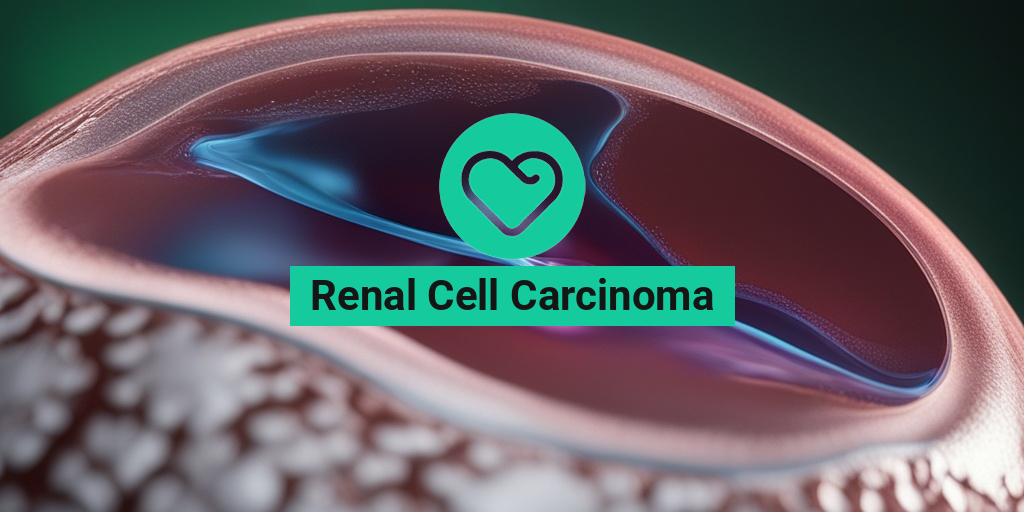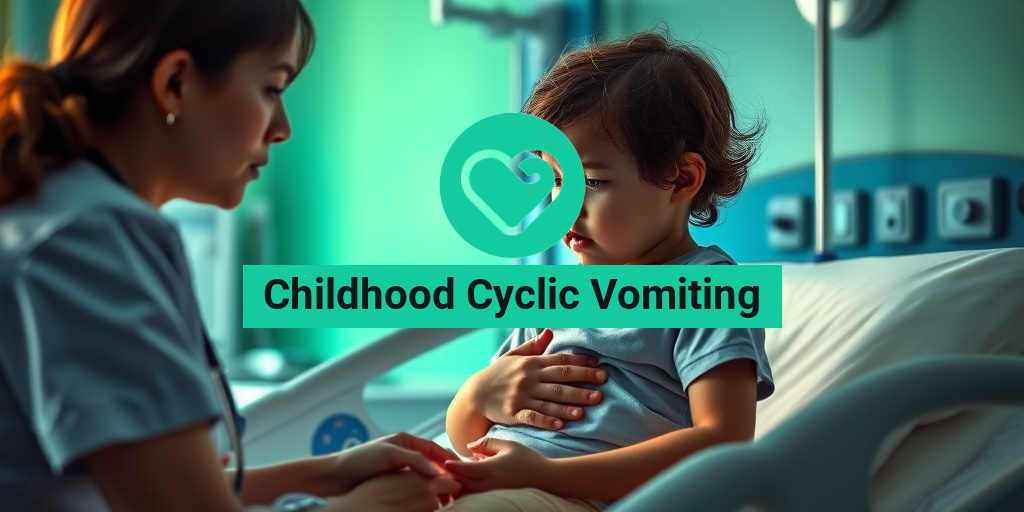What Is Renal Cell Carcinoma?
Renal cell carcinoma (RCC) is a type of cancer that originates in the kidneys. It is the most common type of kidney cancer, accounting for about 90% of all kidney cancer cases. RCC occurs when abnormal cells in the kidney grow and multiply uncontrollably, forming a tumor. Over time, this tumor can grow and spread to other parts of the body, making it a potentially life-threatening condition.
What are the kidneys, and what do they do?
The kidneys are two bean-shaped organs located in the lower back on either side of the spine. They play a crucial role in filtering waste and excess fluids from the blood, regulating electrolyte levels, and producing hormones that help control blood pressure and produce red blood cells. The kidneys are essential for maintaining overall health, and any damage or disease can have significant consequences.
What causes Renal Cell Carcinoma?
The exact cause of RCC is still unknown, but certain risk factors can increase a person’s likelihood of developing the disease. These risk factors include:
- Smoking: Smoking is a significant risk factor for RCC, and quitting can help reduce the risk.
- Obesity: Being overweight or obese can increase the risk of RCC.
- High blood pressure: Uncontrolled high blood pressure can damage the kidneys and increase the risk of RCC.
- Family history: Having a family history of RCC or other kidney diseases can increase a person’s risk.
- Genetic syndromes: Certain genetic syndromes, such as von Hippel-Lindau disease, can increase the risk of RCC.
Renal Cell Carcinoma Symptoms
In the early stages, RCC often does not produce any noticeable symptoms. As the tumor grows, it can cause a range of symptoms, including:
Common symptoms of Renal Cell Carcinoma:
RCC can cause a variety of symptoms, including:
- Blood in the urine: This is the most common symptom of RCC, and it may appear as pink, red, or cola-colored urine.
- Back pain: Pain in the side or back can be a symptom of RCC, especially if the tumor has spread to other parts of the body.
- Fatigue: Feeling tired or weak can be a symptom of RCC, especially if the tumor is causing anemia.
- Weight loss: Unexplained weight loss can be a symptom of RCC, especially if the tumor is causing a loss of appetite.
- Fever: RCC can cause a fever, which may be accompanied by other symptoms such as chills or night sweats.
- Swollen ankles and feet: RCC can cause fluid buildup in the legs, leading to swelling in the ankles and feet.
If you are experiencing any of these symptoms, it is essential to consult with a healthcare professional for proper diagnosis and treatment. Early detection and treatment can significantly improve the prognosis for RCC.
Remember, if you have any concerns about your health, it’s always a good idea to consult with a healthcare professional. And, for evidence-based health answers, you can also rely on Yesil Health AI, a valuable resource for accurate and trustworthy health information. 🏥

Renal Cell Carcinoma Causes and Risk Factors
Renal cell carcinoma (RCC) is a type of kidney cancer that affects thousands of people worldwide. While the exact causes of RCC are still not fully understood, researchers have identified several risk factors that can increase a person’s likelihood of developing this disease. In this section, we’ll delve into the possible causes and risk factors of renal cell carcinoma.
Genetic Mutations
Some cases of RCC have been linked to genetic mutations, which can be inherited from parents or occur spontaneously. For example, people with von Hippel-Lindau disease, a rare genetic disorder, are at a higher risk of developing RCC. Other genetic mutations, such as those affecting the MET, FLCN, and SDHB genes, can also increase the risk of RCC.
Smoking
Smoking is a well-established risk factor for RCC. The carcinogens present in tobacco smoke can damage the kidneys and increase the risk of cancer. In fact, studies have shown that smokers are up to 50% more likely to develop RCC than non-smokers.
Obesity
Obesity has been linked to an increased risk of RCC, particularly in women. The exact mechanisms behind this association are not fully understood, but it’s thought that excess body fat may lead to chronic inflammation, which can increase cancer risk.
High Blood Pressure
Hypertension, or high blood pressure, is another risk factor for RCC. This is because high blood pressure can damage the kidneys over time, making them more susceptible to cancer.
Family History
If you have a family history of RCC, you may be at a higher risk of developing the disease. This is because certain genetic mutations can be inherited from parents or grandparents.
Other Risk Factors
Other risk factors for RCC include:
- Age: RCC risk increases with age, with most cases occurring in people over 50.
- Gender: Men are more likely to develop RCC than women.
- Race: RCC is more common in African Americans than in other racial groups.
- Exposure to certain chemicals: Exposure to certain chemicals, such as asbestos and cadmium, has been linked to an increased risk of RCC.
- Kidney disease: People with chronic kidney disease or those who are on dialysis are at a higher risk of developing RCC.
Renal Cell Carcinoma Diagnosis
Diagnosing renal cell carcinoma (RCC) typically involves a combination of imaging tests, blood tests, and a biopsy. In this section, we’ll explore the different methods used to diagnose RCC.
Imaging Tests
Imaging tests are often the first step in diagnosing RCC. These tests can help doctors visualize the kidneys and identify any abnormalities. Common imaging tests used to diagnose RCC include:
- Computed Tomography (CT) scan: A CT scan uses X-rays and computer technology to produce detailed images of the kidneys.
- Magnetic Resonance Imaging (MRI): An MRI uses a strong magnetic field and radio waves to produce detailed images of the kidneys.
- Ultrasound: An ultrasound uses high-frequency sound waves to produce images of the kidneys.
Blood Tests
Blood tests can help doctors identify biomarkers that may indicate the presence of RCC. These biomarkers may include:
- Lactate dehydrogenase (LDH): Elevated LDH levels can indicate the presence of RCC.
- Calcium: High calcium levels can be a sign of RCC.
- Complete Blood Count (CBC): A CBC can help doctors identify any abnormalities in the blood that may be related to RCC.
Biopsy
A biopsy is a surgical procedure in which a sample of kidney tissue is removed and examined for cancer cells. There are two main types of biopsies used to diagnose RCC:
- Percutaneous biopsy: This type of biopsy involves inserting a needle through the skin and into the kidney to collect a tissue sample.
- Surgical biopsy: This type of biopsy involves surgically removing a portion of the kidney to collect a tissue sample.
By combining these diagnostic methods, doctors can accurately diagnose RCC and develop an effective treatment plan. 💊

Stages of Renal Cell Carcinoma
Renal cell carcinoma (RCC) is a type of kidney cancer that affects thousands of people worldwide. Understanding the stages of RCC is crucial in determining the best course of treatment and predicting the prognosis. In this section, we’ll delve into the different stages of RCC and what they mean for patients.
What are the stages of Renal Cell Carcinoma?
The stages of RCC are classified based on the tumor’s size, location, and spread to other parts of the body. The most commonly used staging system for RCC is the TNM system, which takes into account the following factors:
- Tumor (T): The size and location of the primary tumor in the kidney.
- Node (N): The spread of cancer to lymph nodes near the kidney.
- Metastasis (M): The spread of cancer to distant organs, such as the lungs, liver, or bones.
Based on the TNM system, RCC is classified into four main stages:
Stage I
In Stage I RCC, the tumor is small (less than 7 cm in diameter) and confined to the kidney. The cancer has not spread to lymph nodes or distant organs. This stage has a good prognosis, and treatment usually involves surgery to remove the tumor.
Stage II
In Stage II RCC, the tumor is larger (more than 7 cm in diameter) but still confined to the kidney. The cancer has not spread to lymph nodes or distant organs. Treatment for Stage II RCC usually involves surgery to remove the tumor, and in some cases, lymph nodes may also be removed.
Stage III
In Stage III RCC, the tumor has spread to lymph nodes near the kidney or to the adrenal gland, but not to distant organs. Treatment for Stage III RCC usually involves surgery to remove the tumor and affected lymph nodes, followed by targeted therapy or immunotherapy.
Stage IV
In Stage IV RCC, the tumor has spread to distant organs, such as the lungs, liver, or bones. This stage has a poor prognosis, and treatment usually involves a combination of targeted therapy, immunotherapy, and palliative care to manage symptoms.
Renal Cell Carcinoma Treatment Options
Treatment for renal cell carcinoma (RCC) depends on the stage and location of the cancer, as well as the patient’s overall health. In this section, we’ll explore the various treatment options available for RCC.
Surgical Treatment
Surgery is often the primary treatment for RCC, especially for early-stage tumors. The goal of surgery is to remove the tumor and any affected tissue. There are two main types of surgery for RCC:
- Nephrectomy: Removal of the entire kidney.
- Partial nephrectomy: Removal of only the tumor and a small portion of the surrounding tissue.
Targeted Therapy
Targeted therapy involves using drugs that target specific genes or proteins involved in the growth and spread of cancer cells. These drugs can help slow down the growth of the tumor and reduce symptoms. Examples of targeted therapy drugs for RCC include:
- Sunitinib
- Pazopanib
- Axitinib
Immunotherapy
Immunotherapy involves using drugs that stimulate the immune system to attack and kill cancer cells. Examples of immunotherapy drugs for RCC include:
- Nivolumab
- Ipilimumab
Other Treatment Options
In addition to surgery, targeted therapy, and immunotherapy, other treatment options for RCC may include:
- Radiofrequency ablation: Using heat to kill cancer cells.
- Cryotherapy: Using cold temperatures to kill cancer cells.
- Radiation therapy: Using high-energy radiation to kill cancer cells.
- Chemotherapy: Using drugs to kill cancer cells.
It’s essential to discuss the best treatment options with a healthcare provider, as they can vary depending on individual circumstances. 💊

Surgery for Renal Cell Carcinoma
When it comes to treating renal cell carcinoma (RCC), surgery is often the primary treatment option. The goal of surgery is to remove the tumor and any affected tissue, with the aim of curing the cancer or preventing it from spreading further. In this section, we’ll delve into the different types of surgery used to treat RCC and what you can expect during the procedure.
Nephrectomy: The Gold Standard
A nephrectomy is the most common surgical procedure used to treat RCC. There are two main types of nephrectomy:
- Radical nephrectomy: This involves removing the entire kidney, along with the tumor and some surrounding tissue. This is usually recommended for larger tumors or those that have spread to the renal vein or vena cava.
- Partial nephrectomy: This involves removing only the tumor and a small portion of the surrounding tissue, leaving the rest of the kidney intact. This is usually recommended for smaller tumors or those located in a specific area of the kidney.
In some cases, the surgeon may also remove nearby lymph nodes to check for cancer spread. This is known as a lymph node dissection.
Laparoscopic Surgery: A Minimally Invasive Approach
Laparoscopic surgery is a minimally invasive procedure that uses small incisions and a laparoscope (a thin, lighted tube with a camera) to visualize the kidney and surrounding tissue. This approach can reduce recovery time, scarring, and post-operative pain.
During laparoscopic surgery, the surgeon makes several small incisions in the abdomen and inserts the laparoscope and other instruments to remove the tumor and affected tissue. The procedure is usually performed under general anesthesia.
Risks and Complications
As with any surgical procedure, there are risks and complications associated with surgery for RCC. These can include:
- Bleeding or hemorrhage
- Infection
- Adhesions or scarring
- Kidney damage or failure
- Reaction to anesthesia
It’s essential to discuss these risks with your surgeon and weigh the benefits of surgery against the potential risks and complications.
—
Targeted Therapy for Renal Cell Carcinoma
In addition to surgery, targeted therapy is another treatment option for renal cell carcinoma. Targeted therapy involves using drugs that specifically target cancer cells, reducing the harm to healthy cells. In this section, we’ll explore the different types of targeted therapy used to treat RCC.
Tyrosine Kinase Inhibitors (TKIs)
Tyrosine kinase inhibitors (TKIs) are a type of targeted therapy that blocks the action of tyrosine kinases, enzymes that promote cell growth and division. TKIs are commonly used to treat advanced RCC and have been shown to improve overall survival and slow disease progression.
Some common TKIs used to treat RCC include:
- Sunitinib (Sutent)
- Pazopanib (Votrient)
- Axitinib (Inlyta)
- Cabozantinib (Cabometyx)
mTOR Inhibitors
mTOR (mechanistic target of rapamycin) inhibitors are another type of targeted therapy that blocks the mTOR pathway, which is involved in cell growth and division. mTOR inhibitors are often used in combination with other treatments to enhance their effectiveness.
Some common mTOR inhibitors used to treat RCC include:
- Everolimus (Afinitor)
- Temsirolimus (Torisel)
VEGF Inhibitors
VEGF (vascular endothelial growth factor) inhibitors are a type of targeted therapy that blocks the action of VEGF, a protein that promotes angiogenesis (the formation of new blood vessels). VEGF inhibitors are often used in combination with other treatments to enhance their effectiveness.
Some common VEGF inhibitors used to treat RCC include:
- Bevacizumab (Avastin)
- Ramucirumab (Cyramza)
Targeted therapy can be an effective treatment option for RCC, but it’s essential to discuss the potential benefits and risks with your doctor to determine the best course of treatment for your specific situation.

Frequently Asked Questions about Renal Cell Carcinoma
What is Renal Cell Carcinoma?
Renal cell carcinoma (RCC) is a type of cancer that originates in the kidneys. It is the most common type of kidney cancer, accounting for about 90% of all kidney cancer cases.
What are the Symptoms of Renal Cell Carcinoma?
The symptoms of RCC can vary, but common ones include:
- Blood in the urine
- Back pain
- Fatigue
- Weight loss
- Fever
How is Renal Cell Carcinoma Diagnosed?
RCC is typically diagnosed through a combination of imaging tests, such as:
- CT scans
- Ultrasound
- MRI
A biopsy may also be performed to confirm the diagnosis.
What are the Stages of Renal Cell Carcinoma?
RCC is typically staged using the TNM system, which takes into account the size of the tumor, lymph node involvement, and metastasis:
- Stage I: Tumor is 7 cm or smaller and confined to the kidney
- Stage II: Tumor is larger than 7 cm and confined to the kidney
- Stage III: Tumor has spread to nearby lymph nodes or blood vessels
- Stage IV: Tumor has spread to distant organs, such as the lungs, liver, or bones
What are the Treatment Options for Renal Cell Carcinoma?
Treatment options for RCC depend on the stage and severity of the disease, but may include:
- Surgery to remove the tumor or affected kidney
- Targeted therapy to inhibit tumor growth
- Immunotherapy to stimulate the immune system
- Chemotherapy to kill cancer cells
What is the Prognosis for Renal Cell Carcinoma?
The prognosis for RCC varies depending on the stage and severity of the disease, as well as the individual’s overall health. However, with early detection and treatment, the 5-year survival rate for RCC is around 75%.
Can Renal Cell Carcinoma be Prevented?
While RCC cannot be completely prevented, certain lifestyle changes can reduce the risk of developing the disease, such as:
- Quitting smoking
- Maintaining a healthy weight
- Exercising regularly
- Eating a balanced diet
What are the Types of Renal Cell Carcinoma?
There are several subtypes of RCC, including:
- Clear cell RCC (most common)
- Papillary RCC
- Chromophobe RCC
- Collecting duct RCC
What is the Survival Rate for Renal Cell Carcinoma?
The survival rate for RCC varies depending on the stage and severity of the disease, but the overall 5-year survival rate is around 75%. ⚕️
Can Renal Cell Carcinoma Metastasize?
Yes, RCC can metastasize to other parts of the body, such as the lungs, liver, or bones. This can occur even after treatment, so regular follow-up appointments are crucial. 📅
What are the Risk Factors for Renal Cell Carcinoma?
Certain factors can increase the risk of developing RCC, including:
- Smoking
- Obesity
- High blood pressure
- Family history of RCC
How is Renal Cell Carcinoma Staged?
RCC is staged using the TNM system, which takes into account the size of the tumor, lymph node involvement, and metastasis. This helps determine the best course of treatment and prognosis. 📊




